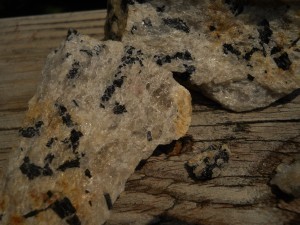Here are some thoughts and pictures I've saved up over the past few days. First, a picture of magnificent skies. Such weighty clouds, such gauze of rain over there in the distance, and such uncanny light:
 Influential rain
Influential rainSome days later, there was a walk alongside a canal. Rain was coming down, not severely, but--and we hadn't expected this--fairly unquittingly. It was watching its influence spread as it hit the canal water. Lots of little circles of influence:
 Salamander
SalamanderAnd here, in a photo by
![[livejournal.com profile]](https://www.dreamwidth.org/img/external/lj-userinfo.gif) urbpan
urbpan, is a magical creature, bred of wetness, despite the fact that the ancients associated its kind with fire. See how his hind quarters melt away? And he sparkles darkly. You can find out all about this salamander, a "leadback," at
![[livejournal.com profile]](https://www.dreamwidth.org/img/external/lj-userinfo.gif) urbpan
urbpan's entry
here. Puzzler
PuzzlerThe winner of NPR's Sunday puzzler yesterday was a 15-year-old, Arushi Agarwal. Will Shortz asked her if she'd been playing long, and she said she'd been playing for five years: her parents had thought that working on the puzzle each Sunday would be a great way to stretch their minds and spend family time together. I was so charmed by that notion! What a fun family thing to do! ... Only if everyone participates willingly, but Arushi seemed very happy. She has a brother, too, who's part of all this.
"So did you have help solving last week's puzzle?" Will Shortz asked.
"Yes, my brother helped me."
(The puzzle had been, take the name of a major US company, take off its first and last letters, and the remainder of the letters, in order, will spell out the name of a well-known singer.)
She went on, "We figured we probably wouldn't know the singer, so we took a list of the Fortune 500 companies and just went through it. When we got to "Walgreens" and took off the W and the S, we thought, 'Al Green seems like a pretty viable name,' so we went and looked, and yeah, he's a singer."
"So you didn't even know him," Will Shortz remarked with a laugh, and she said no, so he played her a clip of an Al Green song. And then she did the puzzle on air, and acquitted herself admirably.
I fell into a daydream about the Agarwal siblings figuring this out, the parents enjoying their kids working on it... I'd like to draw the picture, but I don't know if I will...
Rock of the month![[livejournal.com profile]](https://www.dreamwidth.org/img/external/lj-userinfo.gif) a_soft_world
a_soft_world was visiting. She told me about how she and her brother used to like breaking rocks open, and how they'd display the rock of the month--the one that was most fabulous or interesting inside. On our walk by the canal, in the influential rain, she picked up two, and the next day, we hurled them at a large boulder, and they did shatter! And here is one, split open:

Surely worthy of the title of rock of the month.












